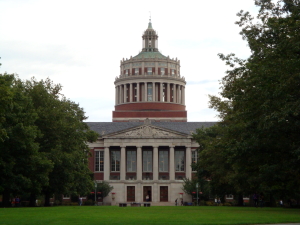You’ve received your acceptance letters, and, if you’re lucky, you’re now facing the arduous task of choosing among several great options. On the other hand, you may be upset that you didn’t get into your top choice school(s) and now have to select from “less desirable” colleges.
For many students, choosing a college is the first big decision they’ll make in life. The implications seem huge: your choice will determine where you’ll live, whom you’ll meet, and, of course, what you’ll learn over the next four (hopefully no more) years. More importantly, how you do in college, the connections you make, and the experiences you have will impact your future prospects, whether they involve additional schooling or a job.
Yet, according to a recent op ed in Time, where you go to college is not as important as the fact that you simply go (and graduate, of course). This flies in the face of everything students and parents have read, heard, and absorbed over the last several years, perhaps beginning when the students were just babies. It’s why colleges like Harvard, Stanford, and the University of Chicago are in such high demand that they accept fewer than 10% of their applicants. Isn’t there something to be said for an Ivy League or similar type of education?
According to Michael Bernick, author of the aforementioned Time article, the answer is a resounding no. Bernick states, “Forty years ago, elite colleges offered a demonstrably higher level of education. Today, as many as 200 colleges across the U.S. offer a similar level of education and have excellent faculty and facilities.”
Bernick seems to be a reliable authority on the subject: he is the former director of the California Labor Department and the Employment Development Department and has worked in job training and placement for 35 years. He argues that where you earn your degree “matters far less than your academic performance and the skills you can show employers.” He sites several studies that support this statement.
Perhaps Bernick’s piece will help calm the frenzy around college rankings and reduce the number of students who feel compelled to apply to the nation’s “top” colleges, even if other schools might actually be a better fit. While that’s probably wishful thinking, maybe his article at least will help reduce students’ stress around picking a college.






